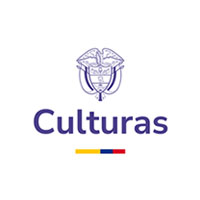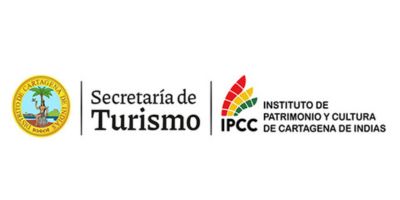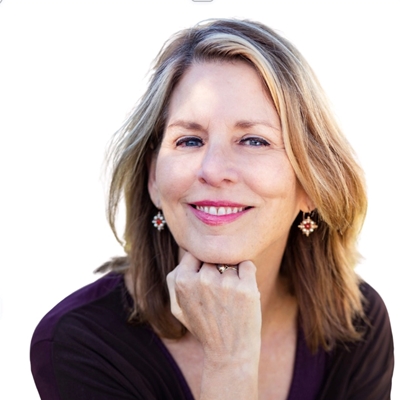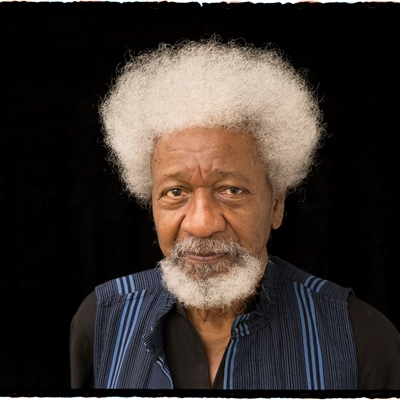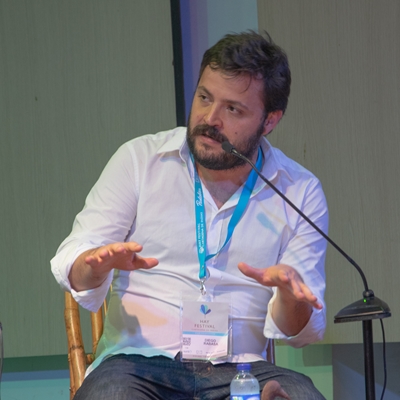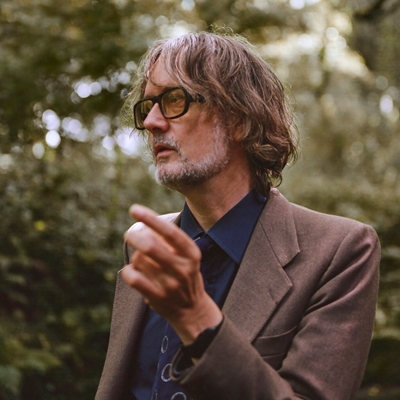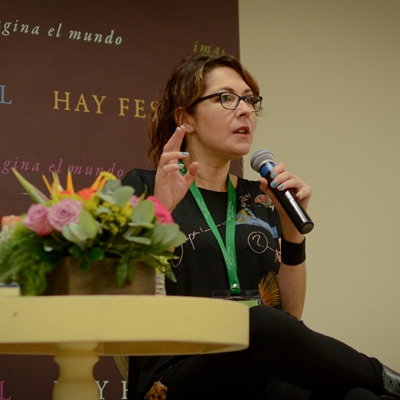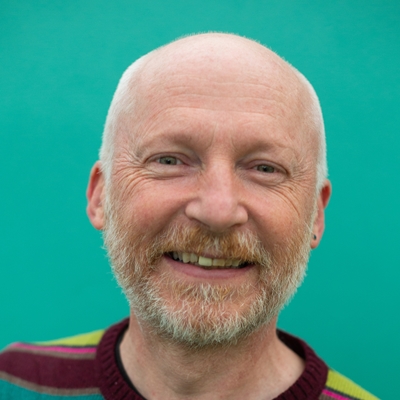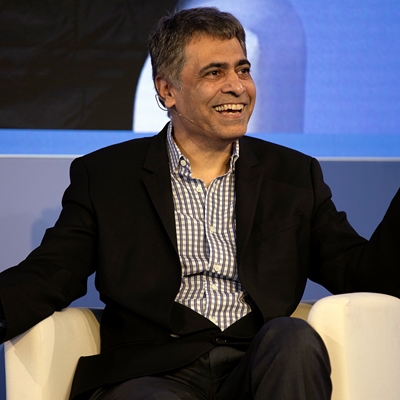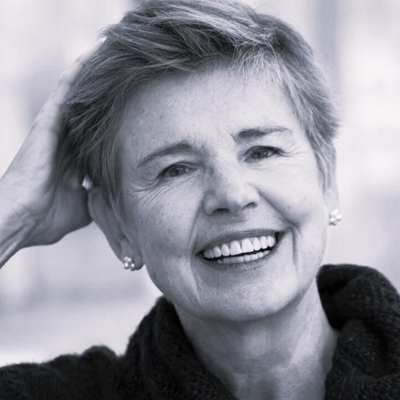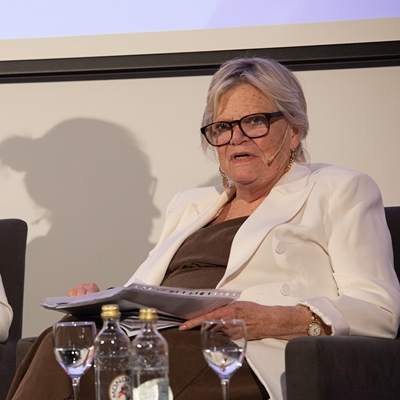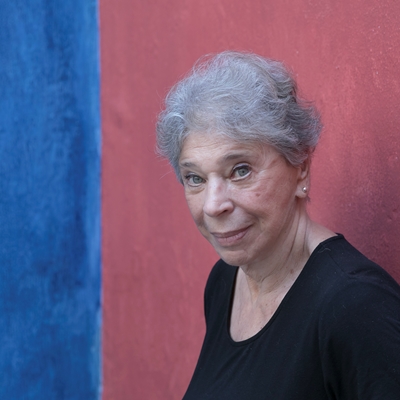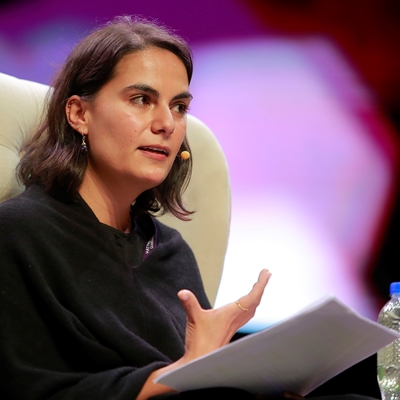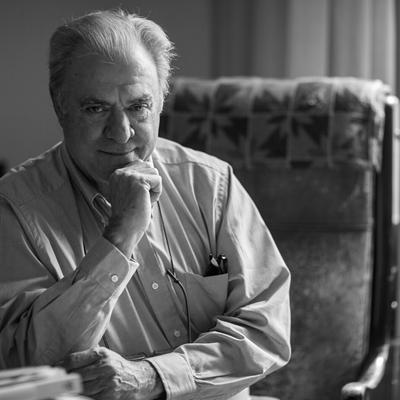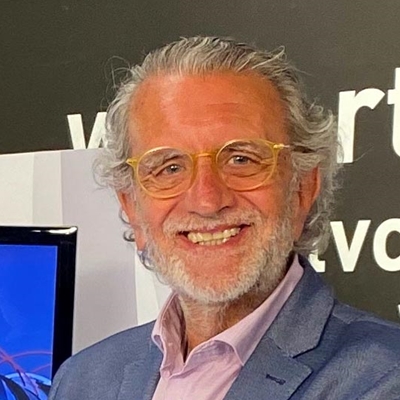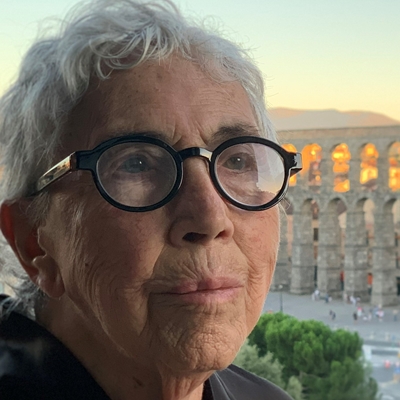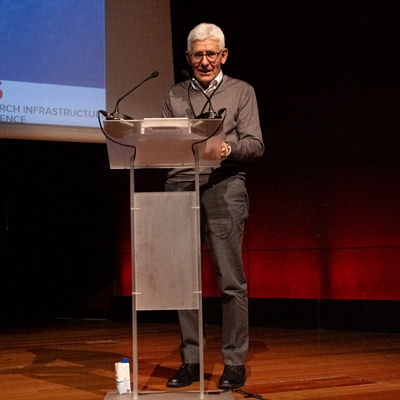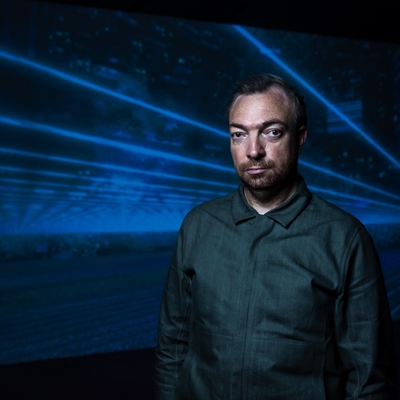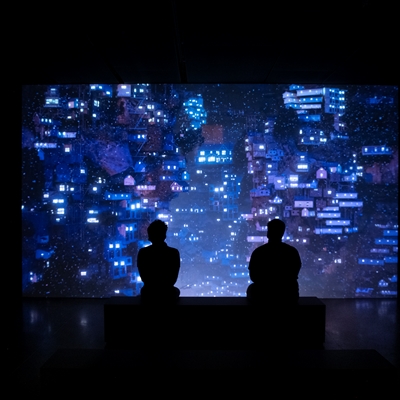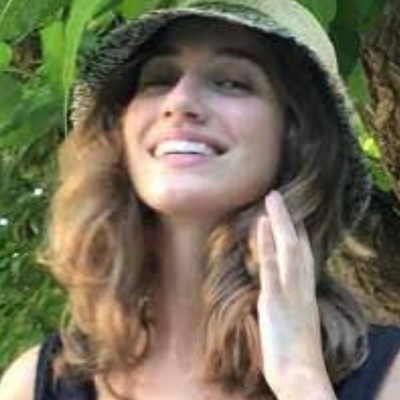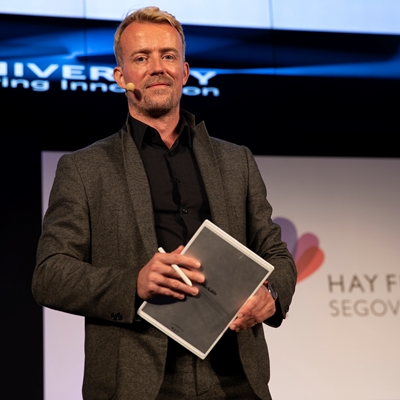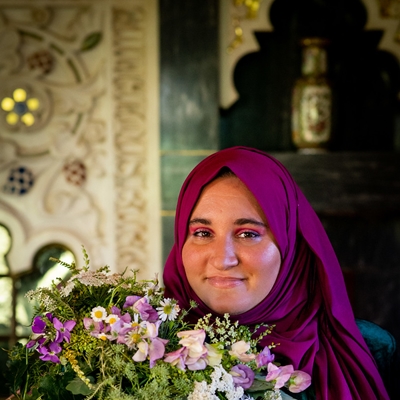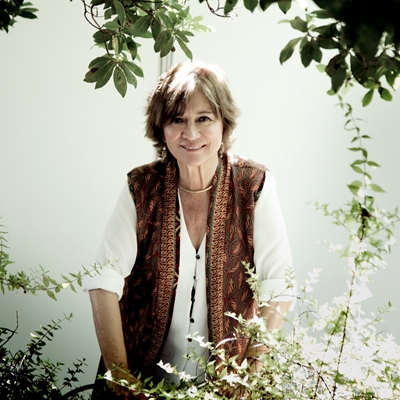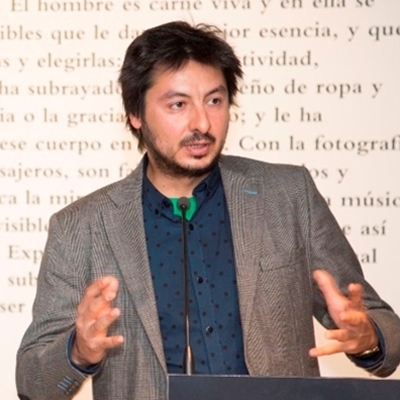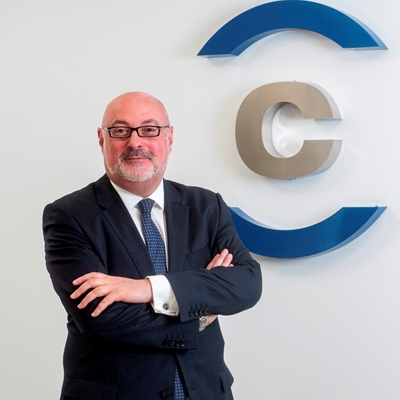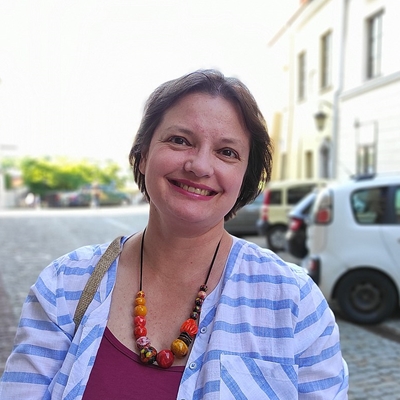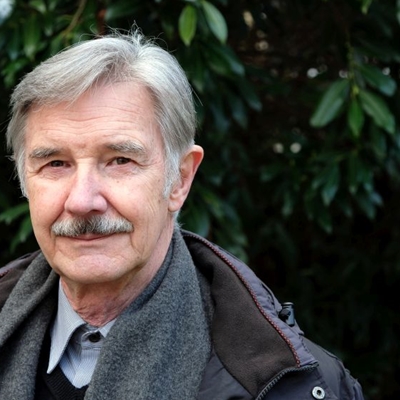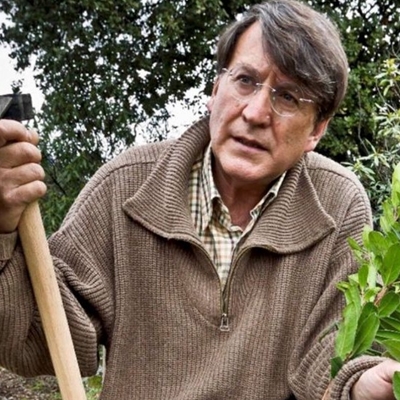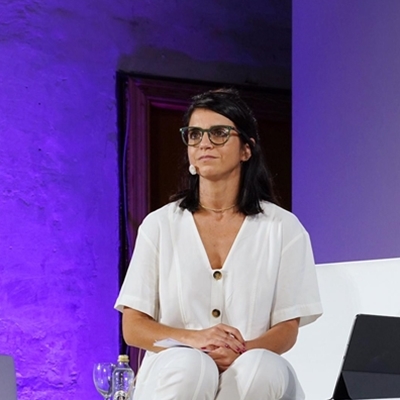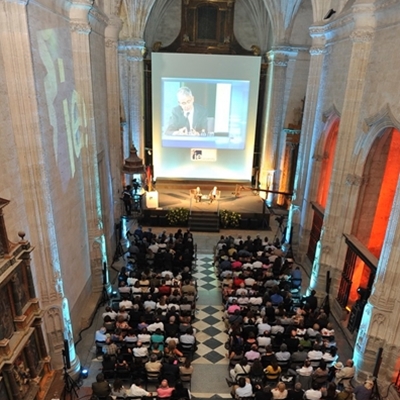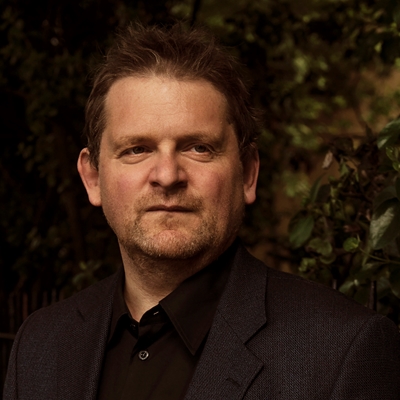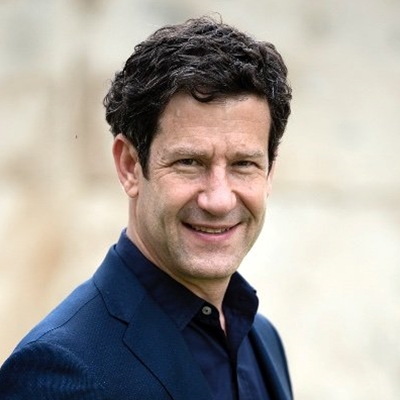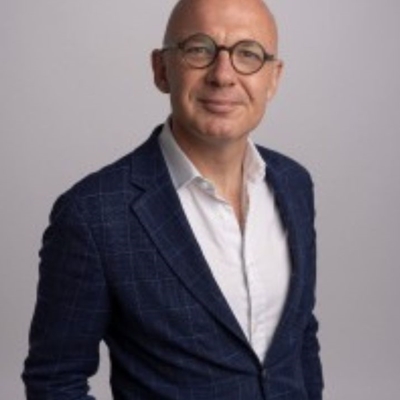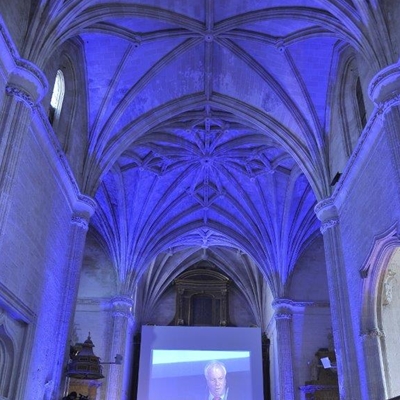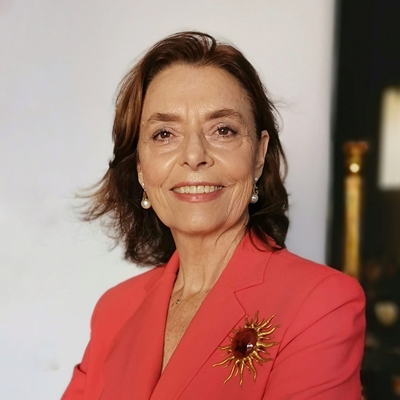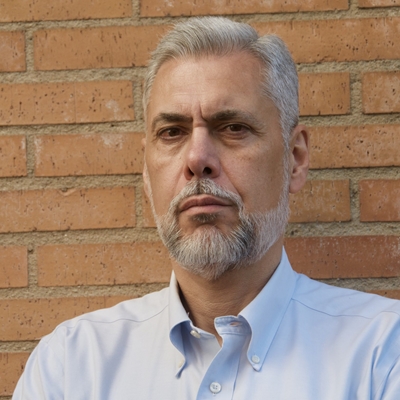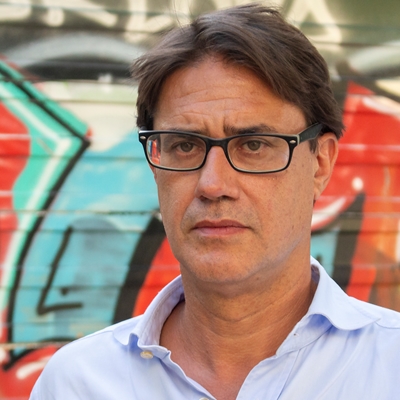Online events
Event 16
Human beings have always made sense of their world by means of stories. But now, as people increasingly retreat into silos of perceived differences and the planet verges on catastrophe, the need for stories has never been greater, because storytelling offers us a way out of social and ecological collapse.
In this interactive workshop, Cece Helgesen, founder of StoryJam Europe based in Montpellier, France, will examine the role of storytelling in our personal and professional lives and guide participants through a series of exercises aimed at stimulating what she calls "the inner lens of storytelling," so that elements of lived experiences can be used to construct distinctive personal stories that connect with others and spur them to action.
Storytelling is a powerful tool that we can all use to work toward a more compassionate world, not only with each other, but with the planet itself.
Event in French
Event 41
Wole Soyinka in conversation with Diego Rabasa
Teatro de la Ciudad
Ironic, lucid and combative, Wole Soyinka (Nigeria) was Africa’s first Literature Nobel prize-winner. He is a fiction writer, dramatist, poet and political activist whose extensive body of work includes The Interpreters and Death and the King’s Horseman, a play first performed in 1976. Soyinka was imprisoned twice in Nigeria because of his criticisms of the Nigerian government and he was an outspoken critic of Donald Trump. His most recent book, Chronicles From the Land of the Happiest People on Earth, is a funny and bitter political satire about corruption, crafted in the form of a mystery novel. In an imaginary Nigeria, not so different from the real one, a group of rogues, preachers, entrepreneurs and politicians become involved in a plot linked to trafficking in human parts stolen from a hospital. A brilliant analysis of the human condition that portrays the spheres of power that run the world, as well as the corruption and perversion they are steeped in. In conversation with Diego Rabasa.
Simultaneous translation from English to Spanish available
Event 31
Jarvis Cocker in conversation with Mariana H
Teatro de la Ciudad
Jarvis Cocker is known around the world as the charismatic frontman of the famous British band, Pulp, and the creator of a string of indie-rock hits which had particularly great musical and cultural impact in the 1990s. He has presented his own programme on BBC Radio 6 Music, made documentaries for Radio 4, worked as an editor for Faber & Faber, and continues with his music career, launching albums such as Beyond the Pale, one of his finest post-Pulp releases. This year the Spanish-language version of his autobiographical book Good Pop, Bad Pop has been published; in it, and through objects stored for years in his attic, he looks at aspects of his life and music career. This is an event for Pulp fans, for lovers of good literature and for those who enjoy good conversation. With the cultural journalist and television presenter Mariana H (Mexico).
Simultaneous translation from English to Spanish available
With the support of the British Council
Event 20
Marcus du Sautoy in conversation with Ikhlaq Sidhu
Mathematics and Technology: Innovation in the 21st Century
IE University. Aula Magna
Letters, numbers and thinking. Everything is more interconnected than you would expect, and the shortcuts provided by maths, which emulate those of nature, help people to think better, thus differentiating ourselves from even the best computer. Though data and artificial intelligence can be extremely beneficial tools in any creative process, humanity is in the numbers.
Marcus du Sautoy, Professor of Mathematics at Oxford University, won the London Mathematical Society’s 2001 Berwick Prize. He works on television with immensely popular programmes about maths, as well as in the written press. His books include The Music of The Primes, The Number Mysteries, What We Cannot Know, The Creativity Code and Thinking Better. Du Sautoy will be in conversation with Ikhlaq Sidhu, Dean of IE School of Science and Technology in Madrid, as well as being the founder and Academic Director of UC Berkeley's Sutardja Center for Entrepreneurship & Technology since 2005.
There will be a book signing at the end of the event in the room next to the entrance of IE University
With simultaneous translation from English to Spanish
Organised together with IE University, along with Acantilado
Event 21
Sally Helgesen in conversation with Marta Williams
The Amazing Stairway
IE University. Sala Capitular
Sally Helgesen and Marta Williams will present an innovative workshop based on Helgesen's acclaimed book How Women Rise. Designed to transform the careers of professional women, the workshop focuses on practical tools as well as concrete strategies for achieving success in the work environment. Over the course of the workshop, a dozen habits that can limit women's career advancement will be addressed. This unique workshop will offer practical solutions to break these negative patterns, and encourage personal and professional growth. The Amazing Stairway is designed to guide professional women through a process of profound transformation.
Helgesen, cited by Forbes as the world's foremost expert on women's leadership and internationally best-selling author of books on leadership, with a place in the Thinkers50 Hall of Fame. Among the books she has written are How Women Rise (where she includes her now famous "12 Habits Holding You Back"), Rising Together, The Female Vision and The Female Advantage. Williams is a pioneer in coaching and executive leadership in Spain and the U.S.A. with a career spanning over four decades.
There will be a book signing at the end of the event in the room next to the entrance of IE University
With simultaneous translation from English to Spanish
Event 36
Vivian Gornick in conversation with Elvira Liceaga
Teatro de la Ciudad
We have the pleasure to talk to the acclaimed writer Vivian Gornick, one of the major voices of the second wave of US feminism, about her work. Her career as a journalist began in the 1960s as a reporter for The Village Voice, before going on to work with The New York Times and The Nation. She is the prolific author of over 15 books, including several autobiographical works, which have made her one of the most outstanding contemporary exponents of personal narrative. In Unfinished Business (2021), the author revisits some of her essential reading, discovering in these texts a new view of herself and awareness of her transformation as a person, in a work that combines literary criticism with the personal, both fields in which Gornick is a seasoned writer. She will talk to Elvira Liceaga.
Simultaneous translation from English to Spanish available
With the support of UNAM
Event 10
Bernardo Pérez in conversation with Aurelio Martín
Photography with passion
La Alhóndiga. Escenario Gales / Llwyfan Cymru
"You don’t take photos with a camera, but with your head and your heart.” So says Bernardo Pérez, whose viewfinder has been aimed at those black holes around the planet suffering from violence, extreme poverty and the abandonment of human rights. His camera was also a witness to some of the main events of the Spanish Transition to Democracy, after he joined the founding team of El País in 1976, as well sporting events such as the Olympic Games, heads of state, international conflicts… Pérez has accompanied writers such as Juan Goytisolo and journalists like Maruja Torres on projects for El País Semanal magazine, assignments that have taken him around the Americas and Europe. He will talk to the Hay Festival Segovia about his experience, putting words to the Compromiso con la realidad exhibition that will accompany the festival, putting a selection of his images on show.
Pérez will talk to the journalist Aurelio Martín.
Event in Spanish
In collaboration with the National Association of Graphic Reporters for Press and TV and Segovia City Council
Event 22
Some structures transcend time and borders, and have an enormous effect on the future of their surroundings. So it is with the Segovia Aqueduct, a magnificent example of the grandeur and vision of the Roman Empire in the lands it conquered. Dominica Contreras from the San Quirce de Segovia Royal Academy of History and Art, and leading expert in the dating of Segovia’s Aqueduct, is the author of the book El misterio del Acueducto de Segovia: vicisitudes y datación. She will explore this theme with the Professor of Archaeology at Madrid’s Autonóma University, Joaquín Barrio. Originally from Segovia, Barrio is a specialist in archaeological heritage conservation and restoration.
There will be a book signing after the event in the room next to the main entrance of IE University.
Event in Spanish
Organized together with El Adelantado de Segovia
Event 15
Liam Young
IE University
This event invites us to explore reality and imagination from the perspective of speculative architect and filmmaker Liam Young. The artist will give a performative talk that, through his words and images, will transport us to real and imaginary worlds that invite us to examine our present and rethink our future. The talk will incorporate an exploration of the use of Artificial Intelligence through a conversation between Liam Young and young researcher Piera Riccio.
Artist Liam Young (Australia, 1979) works in a hybrid space where architecture and design, film, science and fiction intersect to generate powerful audio visual pieces that envision the risks and potential of new technologies. At a time when technological transformation seems to be happening faster than our ability to understand what the effects might be, the worlds that Young constructs invite us to explore their possible outcomes. In his own words, we don’t need more charts and graphs to show us what’s going wrong with the world, we need to dramatize data to get people emotionally engaged.
Liam Young's work has been exhibited in some of the world's leading exhibition spaces, including the MET, MoMA, the Royal Academy and the Venice Biennale. His pieces have also been broadcast on BBC and Channel 4 and he has been nominated for BAFTA awards. He has been a visiting professor at Princeton University and MIT and was on the faculty of the Strelka Institute until its closure.
The young researcher Piera Riccio is working on her doctoral thesis in the field of Artificial Intelligence, with the European ELLIS programme at the University of Alicante and a grant from the Banco Sabadell Foundation for the promotion of young talent. Riccio’s doctoral thesis deals with the social implications of the use of Artificial Intelligence algorithms in social networking platforms and how they are defining the flow of information in our society, thus establishing new paradigms of mass communication.
Organized together with Fundación Telefónica, Fundación Banco Sabadell y IE Fundación
Event 23
One Hundred Years of Solitude. Netflix
Camila Brugés, Natalia Santa and Lourdes Fernández Bencosme with María Jesús Espinosa de los Monteros
IE University. Aula Magna
"Many years later, as he faced the firing squad, Colonel Aureliano Buendía was to remember that distant afternoon when his father took him to discover ice." Thus begins One Hundred Years of Solitude, Gabriel García Márquez’s masterpiece. Now, 57 years after its publication, the platform Netflix is bringing it to the small screen.
Directed by Alex García López and Laura Mora, the action unfolds in 16 chapters following the steps of Aureliano Buendía, his extended family and the microcosm of the now legendary Macondo. This is the first time this work has been adapted into a series format, and it has the support of García Márquez's family.
The preview at the Hay Festival Segovia will include an exhibition of photographs from the serie in the cloister of IE University and a conversation with its two scriptwriters, Natalia Santa and Camila Brugés, together with Lourdes Fernández Bencosme, professor at the IE School of Humanities, moderated by the general director of PRISA audio, María Jesús Espinosa de los Monteros.
Organised together with Netflix and IE Foundation and the collaboration of El País

Event 27
James Massiah is a poet and musician from South London. His work is known for exploring topics such as sexuality, mortality or hedonism through performance, writing and visual media.
Massiah has been commissioned to produce work for the BBC, The Guardian and it has been features in campaigns for Dior, Nike or Lotus, among others. He has performed readings of his work in spaces such as the Tate Modern, the Institute of Contemporary Arts in Boston and the Houses of Parliament (UK). Throughout the last few years, he has also become one of the most sought-after DJs within London’s underground movement.
On this occasion, James will perform a reading from his ongoing series New Poems in which he details his day-to-day experiences of life, love and labour in London. He will also share other pieces that he has been working on lately.
There will be a book signing at the end of the event in the room next to the entrance of IE University.
Simultaneous translation from English into Spanish with subtitles on the screen.
Organised together with British Council
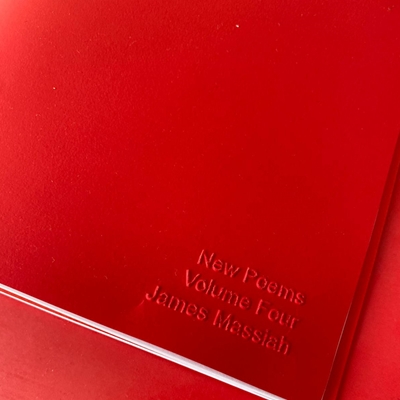
Event 17
Yara Rodrigues Fowler, Hanan Issa and Xita Rubert in conversation with Ludovic Assémat
British Council International Equity Series
IE University
How do new generations experience their relationship to identity, history, love or the concept of revolution? Yara Rodrigues Fowler is one of the most emblematic up-and-coming British writers on the current literary scene. She was shortlisted for the Sunday Times Young Writer of the Year Award for her debut, Stubborn Archivist. The Financial Times named her as one of "the 30 most exciting young people on the planet" as one of the designers of a bot that encouraged Tinder users to register to vote in the 2017 UK general election. Fowler's new novel, There are more things, revolves around the political awakening of Melissa and Catarina, two London flatmates with roots in Brazil.
Hanan Issa is a writer, poet, and artist from Wales. Her debut pamphlet My Body Can House Two Hearts was published by Burning Eye Books in 2019. Her work has been performed and published in a variety of places including BBC Wales, ITV Wales, Huffington Post, StAnza festival and Poetry Wales. Her winning monologue was performed at the Bush Theatre in 2018. She is the co-founder of the Where I’m Coming From open mic collective. She is currently working on short film commissions with BBC New Creatives and Ffilm Cymru Wales. Hanan Issa has been named Wales fifth national poet, making her the first Muslim to hold the title. Hanan has recently been awarded the 2022/23 Cymrodoriaeth Rhyngwladol Hay Festival / Hay Festival International Fellowship.
For her part, Xita Rubert has won over readers and critics with a fascinating debut, My Days with the Kopps, in which she wonders whether growing up is to enter a fiction of no-return. Rubert graduated in Philosophy and Literature from the University of Warwick, after studying at universities such as the Sorbonne. She currently holds a PhD in Comparative Literature, on a scholarship from Princeton University, where she teaches on the relationship between philosophy, literature and medicine.
They will be in conversation with Ludovic Assémat, Head of Arts at the British Council in Spain.
Once the event has finished, the authors will sign books in the booth outside IE University.
With simultaneous translation from English to Spanish
Organized together with the British Council and with the support of Arts Council of Wales
Event 19
Nativel Preciado and Antonio Lucas in conversation with Daniel Fernández
Literature against disinformation
La Alhóndiga. Escenario Gales / Llwyfan Cymru
Can literature counteract the negative consequences for society of fake news? Nativel Preciado and Antonio Lucas, two writers who are both journalists and authors, will try to answer this question from the point of view of literary figures, and also talk about how those who work in the media can fight the impact of fake news and move towards quality journalism. Nativel Preciado has had a long career as a journalist, going back to her coverage of the Transition to Democracy. This columnist and public speaker has published around twenty books. Her latest novel, El santuario de los elefantes, won the Azorín Prize. Antonio Lucas is a well-known cultural journalist, Editor of the El Mundo supplement, La Esfera de Papel. He is also a distinguished poet, having been recognized with the Loewe Prize for his book Los desengaños.
They will talk to Daniel Fernández, editor and CEO of Cedro.
Event in Spanish
After the event, the writers will be signing books at the stand on Calle Real
Organized together with CEDRO and with the collaboration of Segovia City Council
Event 30
Tamara Duda in conversation with Juan Carlos Galindo
Hay Festival Lviv BookForum Series
IE University. Sala Capitular
Tamara Duda is a Ukrainian writer, journalist and translator born in Kyiv, and author of two novels. Her literary debut, Daughter, won her the prestigious BBC Book of the Year Award 2019.
With the outbreak of war in the Donbas, she abandoned everything to serve as a volunteer at the front. In 2014 and 2015, she and her husband raised funds and bought and delivered equipment and aid to Ukrainian soldiers. The author spent two years in combat areas and refers to the period as the most tragic, fascinating, intense and inspiring time of her life. The novel chronicles this experience, unfolding in Donetsk during the spring and summer of 2014. The events and stories in the novel are not fictional, but based on the author's experiences and the people she met while volunteering with the Ukrainian Army.
Duda will talk about her experiences in life and as a writer with Juan Carlos Galindo, a journalist for El País, author of the novel Hontoria, and contributor to Onda Cero’s literary talk show.
There will be a book signing at the end of the event in the room next to the entrance of IE University
With simultaneous translation from English to Spanish
Organised together with Open Society Foundations
Event 20
Josef H. Reichholf and Joaquin Araujo in conversation with Isabela del Alcázar
Dialogues with the Earth. About water, heat and butterflies.
IE University
This summer's heat waves, water scarcity, fires, have put the effects of climate change at the center of the debate more than ever. Meteorological phenomena and interventions on nature are causing alert about our future and that of the planet. Butterflies are disappearing. The deterioration of their habitats due to the use of pesticides, industrial fertilizers and monoculture farming has meant that the numbers of these insects have dropped by 80% in the last fifty years, and the threat of their disappearance is becoming ever more real. The problem goes far beyond the sad loss of some wonderful insects: this is an ecological catastrophe. The renowned evolutionary biologist and ecologist Josef H. Reichholf, winner of the Sigmund Freud Award for Scientific Literature, has been studying lepidopterans for years, and is the author of The Disappearance of Butterflies, a fascinating work of non-fiction about these insects and a cry for help in the face of the disaster of their decline. For his part, Joaquin Araujo, naturalist, author, screenwriter and series director, who stands out among many for having been the first Spaniard to be awarded the UN Global 500 and the Wilderness Writing Award and for being the only Spaniard to be awarded twice the National Prize for the Environment, makes us aware of the biological and poetic importance of water, through his latest book “Somos agua que piensa” "We are water that thinks".
Both will converse with Isabela del Alcázar, Global Head of Sustainability at the IE University. As one example projects under her office: The Nurture Hub, a project founded by two students of the School of Architecture and Design and their mentor to create a space for relax for the students, enhance the biodiversity, raise awareness and attract indigenous pollinators, such as butterflies.
Once the event has finished, the authors will sign books in the booth outside IE University.
Simultaneous translation from German to Spanish and vice versa
Organized together with Acción Cultural Española, AC/E, Spain Guest Country at Frankfurt 2022, and with the support of IE University, Grupo Planeta, the Embassy of Germany in Spain and the Goethe Institut
Event 31
Santiago Iñiguez de Onzoño with Beatriz González Cristóbal, Beatriz Cortázar y Gloria Lomana
From Reflection to Action: Philosophy and Purpose
IE University. Aula Magna
How can philosophy promote fundamental values to help us understand today's society?
In this conversation, Santiago Iñiguez de Onzoño, PhD in Moral Philosophy, President of IE University, and author of several books including Pensadoras y visionarias: Las ideas de diez filósofas aplicadas a la gestión and Global Leaders: la importancia de la formación para los directivos del futuro, will reflect on education and philosophy by exploring the importance of critical thinking and the humanities in business management. He will address how these disciplines can prepare future leaders to face the ethical and social challenges of business and society.
Santiago Iñiguez de Onzoño will speak with Beatriz González Cristóbal, entrepreneur, expert in the luxury sector with top international positions in companies such as Bvlgari, LVMH and Hermés and media advisor, Beatriz Cortázar, a journalist, writer and contributor to television programs, and Gloria Lomana, a journalist and expert in communication and female leadership, founder of 50x50 Gender Leadership.
There will be a book signing at the end of the event in the room next to the entrance of IE University.
Event in Spanish
Organised together with IE Foundation
Event 21
Richard Firth-Godbehere and Lee Newman in conversation with Jonathan Moules
Decisive emotions
IE University
Emotions have played an important role in the development of civilisations throughout history, from Ancient Greece to the present day. Richard Firth-Godbehere, author of A Human History of Emotion: How the Way We Feel Built the World We Know, his expertise in psychology, neuroscience, art, philosophy and religion to show that some of the most exceptional moments in history were not about events, but about feelings: the origins of philosophy, the birth of Christianity, the fall of Rome, the scientific revolution or the great wars of the 20th Century would not be understood without them. We must therefore ask ourselves to what extent emotions and emotional intelligence are important for our generations. Along with Lee Newman, behavioural science expert and Dean of IE Business School, he will discuss how emotions drive our behaviour and decision-making.
They will be joined by Jonathan Moules, journalist, newsletter editor and writer on The Week Ahead for the Financial Times.
Once the event has finished, the authors will sign books in the booth outside IE University.
Event in English with simultaneous translation into Spanish
Organized together with IE Foundation and the collaboration of Penguin Random House Publishing Group
Event 33
Human beings are conditioned by multiple factors that shape their lives. In the past, women were born into a masculine world, put at a disadvantage from the start simply by being women. However, reality and literature are full of stories of people who defied the role that others had chosen for them, or rather for her. Sonsoles Ónega explores this in Las hijas de la criada, the latest Premio Planeta prize-winner that has garnered a legion of followers.
Ónega is a journalist, writer and host of the leading afternoon television program Y ahora Sonsoles. Author of other novels such as Calle Habana, esquina Obispo , Donde Dios no estuvo and Después del amor, she will talk about her work and the characters within it with Ana Gavín, director of Editorial Relations at Grupo Planeta.
There will be a book signing at the end of the event in the room next to the entrance of IE University
Event in Spanish
Organised together with Grupo Planeta
Event 34
Enrique Dans in conversation with José Félix Valdivieso
Technology as culture
IE University. Sala Capitular
Culture doesn’t live in an ivory tower, it’s a street weapon, like technology. Both are dual, like today's digital products. They can be used to call your mom, or trigger a military objective. This is the New Cultural Revolution of China & Co., making us all barbarians. Culture and technology are soft power spearheads, born in the USA. They are the faithful squires of hard power – economy and armies. Technology can be a military as well as a cultural weapon. From this perspective, two polemicists, Enrique Dans and José Félix Valdivieso, will try to shed light on the barbaric technological nature of culture.
There is no technology issue that Enrique Dans has not touched. His blog >ED is among the most read in the world. He is also the author of the bestseller Todo vuelve a cambiar ('Everything Changes Again'). José Félix Valdivieso is the author of several books of poetry, short stories and graffiti. His essay China para los nuevos bárbaros ('China for the New Barbarians') was chosen as Book of the Week by leading Spanish dailies El País and El Mundo.
Event 22
The war in Ukraine and its consequences for Europe pose a new challenge for the continent, while the effects of the pandemic are still present. Germany is more than ever the key factor in the complex scenario of security and energy transition and the need for European unity in the face of Putin's aggression against Ukraine.
Professor of International Public Law and International Relations, lawyer and writer, José María Beneyto has been spokesperson in the Foreign Affairs Committee of the Spanish Congress of Deputies, and Vice-President of the Parliamentary Assembly of the Council of Europe.
He will be in conversation with the Ambassador of the Federal Republic of Germany in Spain, analysing the most contemporary issues of major importance for the future of Europe. Previously Maria Margarete Gosse was the Undersecretary of the German Foreign Ministry (Director of the Central Division), the highest administrative officer of the Ministry. She has dealt among others with issues of immigration and equality policies.
Event in English
Once the event has finished, the authors will sign books in the booth outside IE University.ORGANIZED TOGETHER WITH ACCIÓN CULTURAL ESPAÑOLA, AC/E, SPAIN GUEST COUNTRY AT FRANKFURT 2022, AND WITH THE SUPPORT OF IE UNIVERSITY, GRUPO PLANETA, THE EMBASSY OF GERMANY IN SPAIN AND THE GOETHE INSTITUT
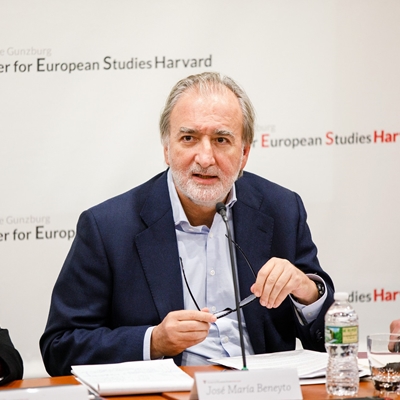
Explore All Genres
- Afrodescendencias
- Latin America
- South to North
- Art
- Arts & Culture
- Children
- Culture
- Design
- Drawing
- Economics
- Equality
- Fashion
- Film
- Food
- Gender
- History
- Human Rights
- Indigenous Cultures
- Journalism
- Language
- Law
- Literature
- Music
- Nature & Environment
- Philosophy
- Photography
- Podcast
- Poetry
- Politics
- Psychology
- Religion
- Science
- Sport
- Technology
- Theatre
- Workshops
- World Affairs
Partner for Latin America

Principal Sponsors


Government Partners
